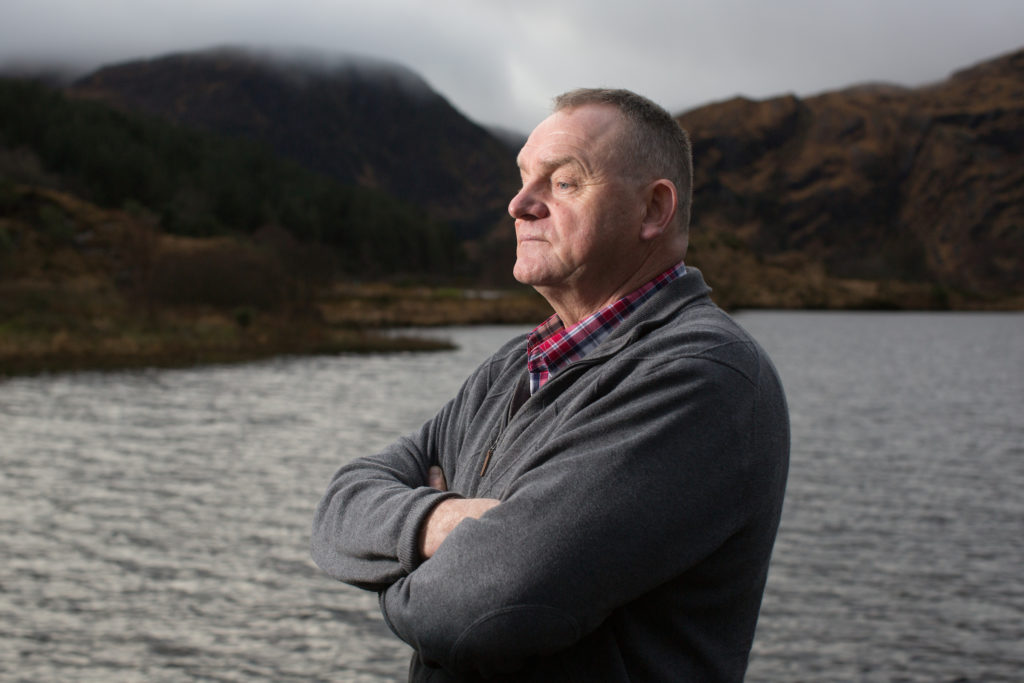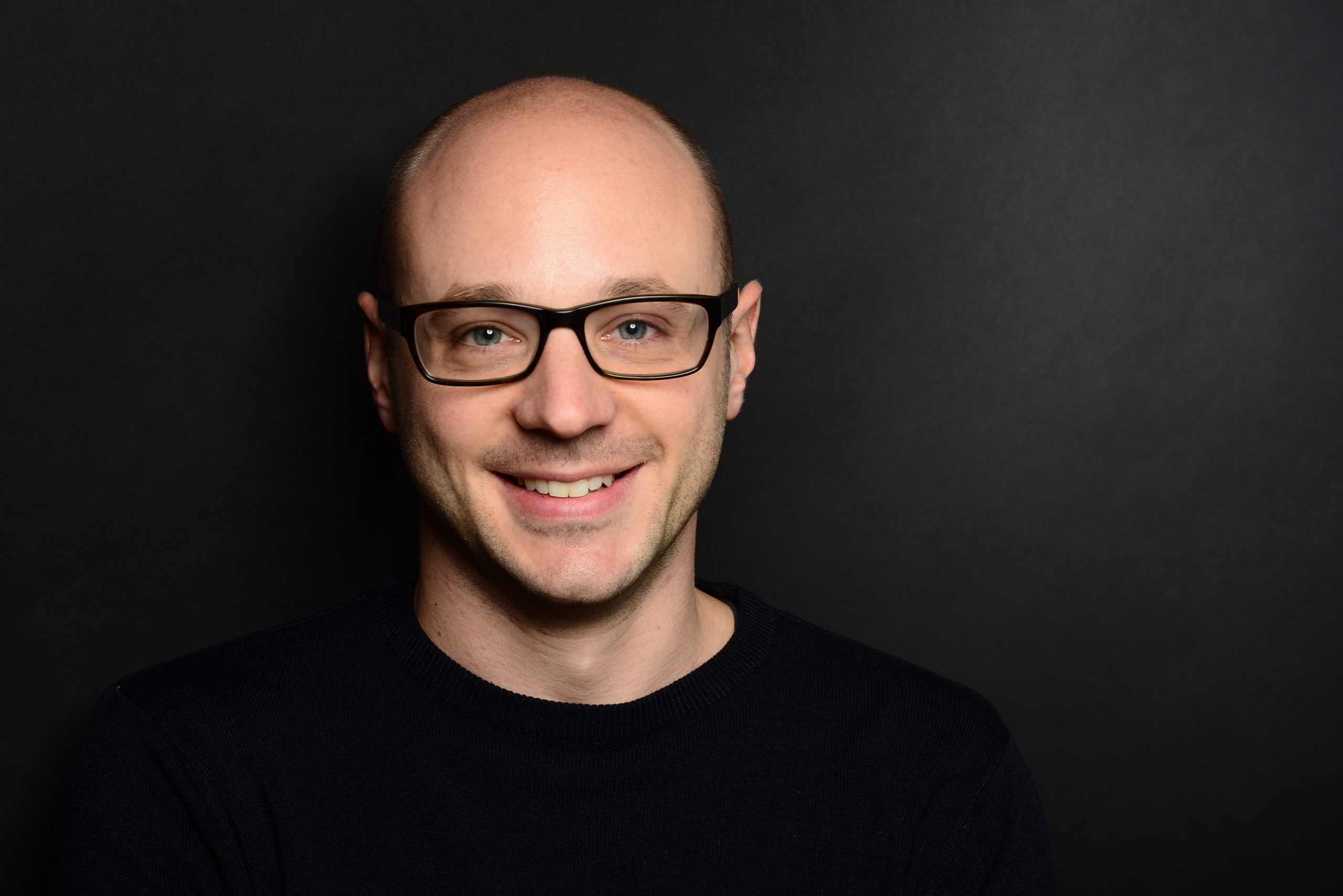Looking back at his somber life of 62 years, Finbarr O’Brien sees some silver linings. The births of his two sons. Afternoons spent with his grandchildren. And an autumn day in 2012 that began like most others, with Finbarr driving his postal van through the small Irish town of Macroom.
That day he drove across rolling green hills and narrow stone bridges, filling 540 mailboxes. On his way home, after delivering all of his letters and packages, he stopped for a cup of coffee. He was sitting at a table alone when a woman entered the café. Finbarr, a good postman, knew that her name was Caroline and that she worked for some sort of polling institute.
Finbarr, she asked him, would you fancy going to Dublin once a month to discuss a new constitution for Ireland?
Finbarr laughed. Surely she was joking.
She wasn’t. Caroline explained that she had been assigned to find ordinary citizens to participate in a so-called constitutional convention. No special skills were required, and it didn’t pay, but travel costs would be reimbursed.
At the time, Ireland was facing two crises: one of economics, another of trust. People had lost faith in the political system, so the government decided to try something. Why not let the citizens have a direct say in the issues? Reforming of the electoral system. Abolishing the Senate. And one of the most controversial: legalizing same-sex marriage.

The prohibition of same-sex marriage was written right into Ireland’s constitution, and this, combined with the power of the Catholic Church, made reform seem highly unlikely. But public opinion was slowly evolving, so the government decided to re-examine the issue. It would do so through the civic experiment of which Finbarr was about to become a part.
The experiment was this: 66 citizens would be selected from the electorate, a cross-section of Irish society — male and female, old and young, urban and rural, high and low earners. They would be joined by 33 politicians as well as an expert who would serve as chairman to the constitutional convention, for a total of 100 people.
This group of 100 would discuss amendments to the constitution that were being considered by the government. No expertise would be required. Each weekend in Dublin, the group would be given time to learn, examine and debate a different issue. Scholars and advocates from both sides would be brought in to make their case. At the end of each weekend, the group would make a recommendation to the parliament, which could either accept or disregard it.
Crushed by negative news?
Sign up for the Reasons to be Cheerful newsletter.
This is how a woman named Caroline came to stand in a cafe in the rainy town of Macroom 250 kilometers southwest of Dublin, and offer a chance to determine the future of Ireland to a stocky postal worker with a round head and a timid smile, who would thank her for considering him and politely decline the offer.
If Finbarr O’Brien were an American, it’s easy to imagine he would have voted for Donald Trump. He was the Irish version of the angry old white man. He hated politics and politicians. The way that they promise you the world and after the election can’t remember a thing! Yet, today, Finbarr is the proud owner of a leather-bound copy of the Irish constitution. Sometimes he flips through it, poring over the signatures and notes from other participants in the convention.
“It was great to meet you.”
“It was great working with you.”
“Thank you!”
Back on that day in the café, Caroline left her phone number with Finbarr just in case he changed his mind. That evening Finbarr caught hell from his oldest son. “Dad,” he said, “you’ll only get a chance like this once. Plus, you can’t keep complaining about politicians and at the same time refuse to make a difference yourself!”
His son was right. As Finbarr dialed Caroline’s number, he secretly hoped that she had already found someone else. But she hadn’t.
A few months later, on a Saturday morning in late January 2013, in a hotel north of Dublin, Finbarr found himself searching for his place on a seating chart on the wall: Table four. It was the constitutional convention’s first working session. The question they would consider was whether or not to reform the electoral system.
Finbarr entered a massive conference room decorated in Irish green. There were cameras at the back, a stage up front and big round tables in between. A few people were already seated, but table four, towards the front, was still empty. Finbarr doesn’t like to be late and therefore often arrives early. He sat down.
A few moments later, a young man came up to the table. He had two lip piercings, and his head was shaved, leaving only a single row of spiky hair down the middle. Finbarr saw that the man was wearing eye makeup and had painted each of his nails a different color of the rainbow. He assumed this man must be gay, and in his chest he felt a surge of panic.
“At first, I thought I’ll punch him through the window,” says Finbarr. “My thoughts were out of control. In my head I was catapulted back into my childhood room. I was nine or ten years of age. Just as clear as the pierced face of this man in front of me, I could see another man’s face in my mind’s eye. A man with polished manners and expensive suits. This was many years ago, but it felt like yesterday. He was a friend of my parents, and whenever he came over they used to always ask him: Are you staying for the night? Every time I hoped he would say no. But no, he would always stay. He would come into my room at night, for around two years, again and again. It would have been a fine thing if the house fell down and buried us under.”
Young Finbarr endured the abuse. He never told a soul what had happened, not even his parents. As a teenager, he hit the bottle, often drinking himself into unconsciousness. He avoided people, and lashed out whenever a man touched him, even by accident. He drove to Cork, where his tormentor was said to live, and roamed the streets, revenge on his mind. He never found him.
Ever since it happened, Finbarr has seen homosexuality as equivalent to pedophilia. He became a lorry driver, longing for solitude. One time, when he was about 20, he put a rope around his neck and jumped. But the rope snapped. He got away with a few scratches and bruises — and his life.

It wasn’t until the age of 50 that he finally spoke to a therapist, who explained to him the difference between homosexuality and pedophilia. It was a revelation. She also taught him techniques to deal with his traumatic flashbacks. As soon as he feels the panic rising, she said, he should lean back, look around and describe what he sees: the color of the walls, the people in the room. This way, he can bring himself out of the flashback and back into the present. To this day, he uses the technique all the time.
And so, Finbarr believed he was ready for the convention, during which he, of all people, was to have a say on same sex marriage. But suddenly all of that disappeared when he saw the man: piercings, fingernails, hair. His chest inflated. Panic.
Finbarr leaned back, looked around: Wood panel walls, beige carpet, a flow of people entering the room.
Seriously? This is the first guy I’m meeting here? I saw him stare on my fingernails, he clearly felt weird about it. I probably went overboard with the gay look. Mohawk, eyeliner, fingernails — I could have done with less. I look at him and he looks up in the air. Okay, gentlemen’s agreement: You don’t look at me, I don’t look at you, and we don’t need to introduce ourselves. Your name tag says Finbarr O’Brien, and mine says Chris Lyons.
In Finbarr, Chris saw the kind of older Irish man he had fought against his whole life. Again and again, he had to explain to them that he was not a pervert, that he was a full-fledged human being. In Cork, at university, Chris had found his place in the small gay community. But even there, men would wait outside the pub to throw bags of beer glasses at him. One time he was hit and cut the back of his head. He laughed it off, but in truth it was devastating.

Chris was 26 when, in the autumn of 2012, the mother of a friend sent him an email about the constitutional convention. She asked whether he wanted to be a part of it.
By then, his unhappiness had morphed into activism. He was angry. Ireland has one last chance, he said at the time. Either he would get full rights or he would emigrate. He had already started looking for houses in Canada.
But when Chris arrived at the convention, his confidence vanished. There were barely any young people, a lot of old traditional Ireland. Then he arrived at his assigned table and saw Finbarr who clearly had trouble pulling himself together.
The participants at the table introduced themselves one by one. When it was Chris’s turn, he was so insecure that he hardly knew what to say. So he said what he was thinking: that he felt out of place. That he would probably not have the confidence to stay. On the other side of the table, Finbarr started to nod.
Seeing that his words were resonating with Finbarr, Chris kept talking, saying that he didn’t know why he was here, among all these important people. Finbarr was now agreeing so emphatically that Chris thought he might climb right across the table.
Then Finbarr burst out: “Thank you for saying that. That’s how I feel.”
At lunch, Finbarr and Chris sat next to each other, and during dinner they shared a laugh about all the experts with their complicated formulas and numbers and graphs who had taken the stage that day. When, at some point, the moderator had asked whether everyone was able to understand the presentation, Finbarr’s hand went up, and he said no, that now he understood even less than before. Chris had been glad, because in truth, he had been just as lost.
In the evening they met at the bar for a pint. Finbarr’s fear hadn’t quite disappeared, but he was surprised by the discrepancy between Chris’s appearance, which conformed exactly to Finbarr’s expectations, and his straightforward manner, so similar to his own.

As the weeks rolled on, Chris arrived in Dublin for convention weekends to find Finbarr, always early, waiting for him at the hotel bar. They would talk late into the night — about Finbarr’s grandchildren, about Chris’s job in IT, but also about the issues being debated at the convention. Should the president’s term be reduced to five years? Should the Senate be abolished?
Over time, these conversations become more personal. Chris told Finbarr about his coming out experience, about how his mother considered him a pedophile and his father’s only concern was secrecy.
Chris shared things with Finbarr he hadn’t even told good friends, and he felt that the more he opened up, the more Finbarr tried to open up about something, too. One day, their conversation started as usual, but then Finbarr kept talking. He didn’t tell Chris everything, but he said enough for Chris to understand.
In April 2013, the convention finally met for its session on same-sex marriage. Finbarr sat at the very front of the room, Chris a few tables further back. Experts and lobbyists presented arguments. At the back of the room, a scrum of journalists covered the proceedings, typing busily on their laptops. Barely anyone was chatting. The room was riveted.
After many conversations with Chris, Finbarr already knew most of the arguments. He had decided at this point that he would probably vote in favor of same-sex marriage. He knew what was at stake for Chris. But one question still nagged him: If two men have children, won’t their kids get bullied at school?
Then, on that Saturday afternoon, a young woman took the stage. Finbarr was all ears.
“Hello, my name is Claire O’Connell,” she said. “I am 22 years old and I’m studying medicine. We are a typical family, except that I have two mothers. People ask me: what is it like having two mums? My answer usually disappoints them because my childhood was quite ordinary. My parents bandaged my knee when I fell and comforted me when I cried. Then people ask: weren’t you bullied? Again, I have to disappoint. Most of my friends even thought it was cool that I have two mothers. The running gag was that my family is the most normal out of all of them.”
This speech put Finbarr firmly in the Yes column. That’s when a Catholic bishop took the stage to talk about the Church’s love for the institution of marriage. As he spoke, Finbarr began thinking of the many boys who had been abused by men of the church, just as he was abused when he was a child.
Suddenly, Finbarr stood up.
Wearing a wine-red sweater with a white shirt underneath, his right hand clasping a microphone, Finbarr began to speak. His words were unrehearsed. A camera zoomed in on his face, broadcasting him live to the internet.
“I think the biggest problem with people is ignorance,” he said. “They don’t know enough. Because it happened to me personally years ago. I was abused and automatically from there on, any gay person I came across, I categorized them as the same — the abuser. And I kept that up until I got educated. And then I found out that the gay people — man or woman — they’re perfect person.”
At that point he hadn’t even told his wife about the abuse. Or his sons. After the session, Finbarr headed straight for the bar and downed a double whiskey. As he stood there, adrenaline still coursing through him, people started to approach him, shaking his hand, congratulating him, thanking him. Two people spoke to him, and Finbarr was surprised to hear that they were gay. They told him how much his words had meant to them.

The next day, 79 of the 100 participants voted in favor of the amendment — 79 percent for the legalization of same-sex marriage in one of the most socially conservative countries in Europe.
It’s hard to say how many of these votes were influenced by Finbarr O’Brien. But Chris says he has no doubt that Finbarr’s speech persuaded others at the convention. Other participants that I interviewed — a teacher from Dublin, a dancer from Kildare, a social worker from Wexford, a political scientist from University College Dublin — said the same thing.
Following the convention’s recommendation, on May 22, 2015, Ireland held a national referendum to decide whether to change its constitution to allow same-sex marriage.
The day of the vote, Chris scrolled through the thousands of pictures on his Twitter feed. Irish citizens living abroad were returning home to vote for same-sex marriage. Marked with the hashtag #hometovote, the photos showed them on planes and buses, young and old, men and women, many holding rainbow flags in their hands.
To Chris it felt almost as if they were returning for him personally, so that he could finally feel like a fully equal citizen in his own country.
Finbarr was at home following the referendum on TV when the newscaster announced the result: 62 percent for gay marriage. The measure had passed. Same-sex marriage would become legal in Ireland.

 A version of story originally appeared in the book “180 Grad: Geschichten gegen den Hass” (180 Degrees: Stories Against Hate) by Bastian Berbner. Berbner is the host of the podcast 180 Grad: Geschichten gegen den Hass. Both feature stories of overcoming hate and division.
A version of story originally appeared in the book “180 Grad: Geschichten gegen den Hass” (180 Degrees: Stories Against Hate) by Bastian Berbner. Berbner is the host of the podcast 180 Grad: Geschichten gegen den Hass. Both feature stories of overcoming hate and division.
